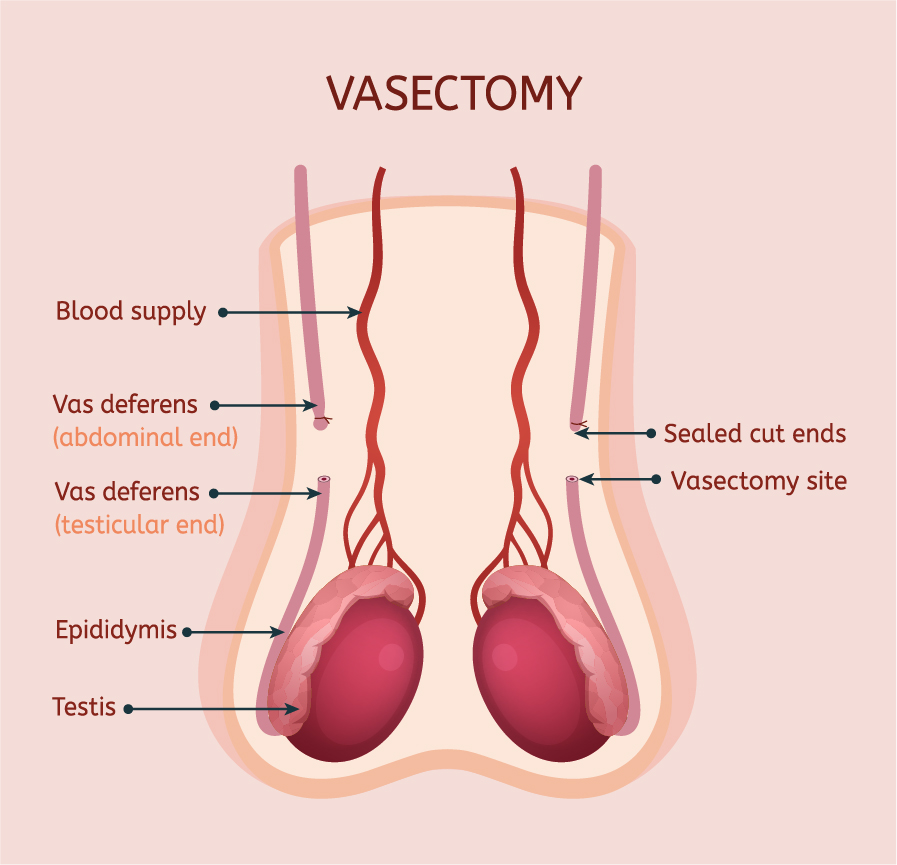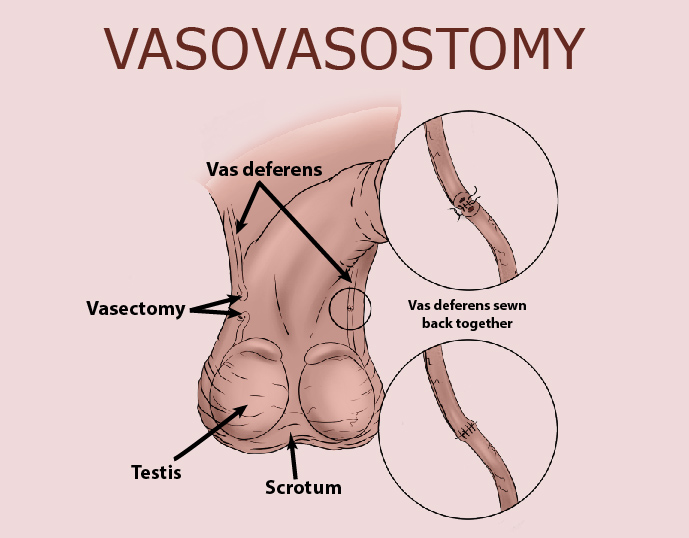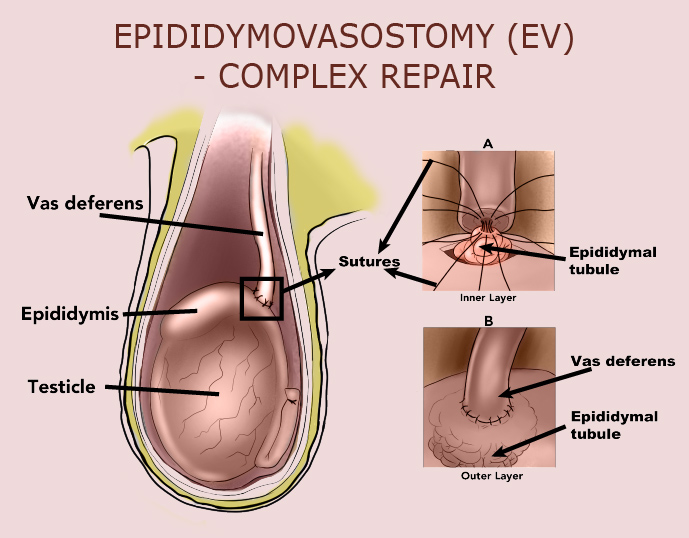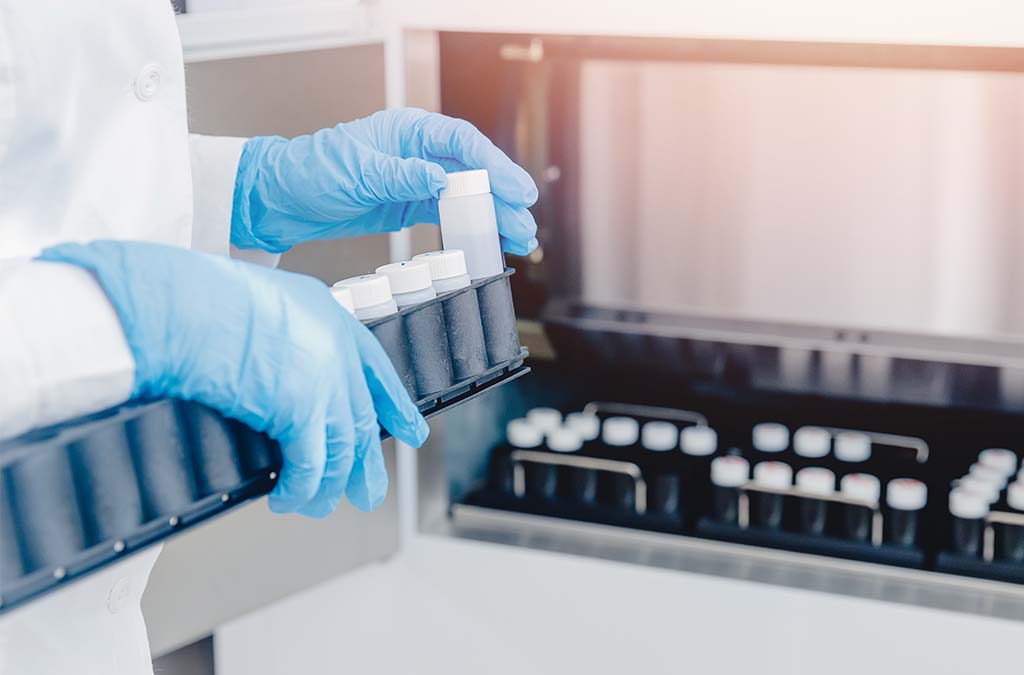About 15% of men who undergo vasectomy regret it, and 5% will desire reversal to restore their fertility. Reversal success rates are high when the surgery is done by a fellowship trained surgeon.
This blog covers the following questions and topics:
- What is a vasectomy reversal?
- What to expect with a vasectomy reversal procedure
- Vasectomy reversal recovery time
- What determines whether a vasectomy reversal is successful?
- Harvesting and banking sperm during a vasectomy reversal
- What is the success rate of vasectomy reversal?
- What is the average time to get pregnant after vasectomy reversal?
- How much does a vasectomy reversal cost?
- Why you shouldn’t just go with the cheapest option
- Does insurance cover vasectomy reversal?
What is a Vasectomy Reversal?
Vasectomy reversal is a surgical procedure to restore male fertility by reconnecting the pathway for sperm to travel from the testicles to a male’s semen.
The tubes that carry the sperm from the testicles are called vas deferens. These tubes are cut and tied off during a vasectomy.

There are two surgical options for vasectomy reversal:
- Vasovasostomy (VV): the surgeon reconnects the vas deferens tubes that were cut during the vasectomy
- Epididymovasostomy (EV): the surgeon connects the vas deferens directly to the epididymis
The exact type of repair necessary on each side depends on whether the fluid quality from the vas deferens is optimal and whether sperm are found still making their way up the vasectomy site, among other factors. Choosing a microsurgeon that can perform both types of repair greatly improves the likelihood of success, regardless of the number of years since the vasectomy.


What to Expect with a Vasectomy Reversal Procedure
- Outpatient microsurgery is done in a private clinic or hospital operating room.
- General anesthesia is recommended as the safest, most comfortable, and optimal anesthesia approach for success.
- Procedure and post-surgery recovery takes about 4-5 hours.
Vasectomy Reversal Recovery
- Similar to vasectomy– achy sensation and mild swelling
- Achy pain can typically be managed with over-the-counter and/or prescription-strength anti-inflammatory medications. Strong narcotics are not necessary.
- Most patients take a full workweek off to rest.
- It is recommended that patients wait a minimum of 7 days before ejaculation after surgery, but if there is any lingering discomfort at that time, patients should wait up to 14 days before resuming sexual activity.
- Light activity should be avoided for one week, and exercise or strenuous activity should be avoided for two weeks. Sports and heavy weight lifting should be avoided for three weeks.
What Determines Whether a Vasectomy Reversal is Successful?
After a successful vasectomy reversal, a male’s sperm will once again appear in the ejaculate, allowing for potential fertilization with a female egg.
- The most important factor determining reversal success is the experience of the surgeon. The surgeon should be a fellowship-trained reproductive urologist who can perform both vasovasostomy (VV) and the much more complex epididymovasostomy (EV) procedure.
- An expert urologist will have undergone 1-2 years of general surgery training followed by 4-5 years of urologic surgery residency training. After residency training, the reproductive urologist will have pursued another 1-2 years of additional sub-specialty training in microsurgery and male infertility surgery. In total, the ideal reproductive urologist will have had 6-8 years of dedicated training operating on the male reproductive tract after medical school and before entering practice.
- The surgeon should use a modern, state-of-the-art operating microscope to aid visualization during the surgery. Vasectomy reversals without the use of an operating microscope are much more likely to fail.
- The vas deferens reconnections should be made in multiple layers using micro sutures that are finer than a human hair.
- A skilled surgeon can reverse a vasectomy on most men regardless of the amount of time that has elapsed since the vasectomy, even significantly longer than 10 years.
- Other very important factors for successful pregnancy after vasectomy reversal are the age and fertility status of the female partner, with natural pregnancies most likely when the female partner is under 40 years of age.

Harvesting and Banking Sperm During a Vasectomy Reversal
Harvesting and banking sperm during a vasectomy reversal is an option not offered by many surgeons, but it is a very important consideration.
The primary reason sperm banking might not be offered is typically because the surgeon does not work within a reproductive medicine center and does not have that option available for his or her patients. Selecting a surgeon and clinic that offers this option may be critical to ensure pregnancy success.
Why is the sperm banking option important? Banking sperm ensures a backup plan for a couple., because even if the vasectomy reversal is successful, there may be other factors, such as the age of the female partner, the male’s resulting sperm quality, and other variables that may interfere with pregnancy success.
By retrieving sperm at the time of surgery, a male can ensure he will always have sperm available in the future for another means to pregnancy with IVF. Banked sperm can always be discarded at any time if the vasectomy reversal proves to be successful.

What is the Success Rate of Vasectomy Reversal?
Success rates for a vasectomy reversal should not be confused with pregnancy success rates after a reversal. Patients need to keep this in mind when evaluating success figures.
Success rates for vasectomy reversal refers to restoration of sperm in the semen. Success depends on the male’s medical history, the location and length of the vasectomy, as well as the size and firmness of the epididymis (which is assessed during the physical exam). Success can also depend on the time since the vasectomy. All these factors should be assessed and discussed in detail with a couple at the initial consultation prior to choosing a surgeon.
Vasectomy Reversal Success Rate Factors by Years
-
Vasectomy reversal success rate after 5 years
- On average, at 5 years, over 95% of males will have successful return of sperm to the ejaculate.
-
Vasectomy reversal success rate after 10 years
- After 10 years, the success rate is around 80%-90%.
-
Vasectomy reversal success rate after 15 years
- When the vasectomy interval is over 15 or 20 years, success rates will be lower, but they remain around 50%.
Pregnancy Success Rates after a Vasectomy Reversal
Remember, estimated success percentages for vasectomy reversals are not pregnancy success rates. A male can have restored sperm in his semen with a vasectomy reversal, but pregnancy success always involves his female partner.
Pregnancy can only occur after a successful vasectomy reversal if the female partner is fertile and can achieve pregnancy with the sperm count that appears after the vasectomy reversal.
Good prognostic factors on the female side include:
- Prior pregnancies
- Normal menstrual cycle
- Age less than 40
- Normal AMH levels which indicate good ovarian reserve
Pregnancy rates decline the longer the vasectomy period for various reasons such as female factor infertility combined with lower sperm counts after a successful reversal.
What is the Average Time to Get Pregnant after a Vasectomy Reversal?
Approximately 6-8 weeks after vasectomy reversal surgery, your surgeon will examine your semen under a microscope to see if sperm is present. When surgery is successful, sperm will typically be present during this exam. However, the appearance of sperm can sometimes take a year or more if a bilateral epididymovasostomy was necessary.
The time to pregnancy after a vasectomy reversal is typically at least 6 months. Unless a pregnancy occurs, the only way to know for sure if a male’s vasectomy reversal was successful is to check the semen. Therefore, multiple semen analyses may need to be done over time.
Even if a vasectomy reversal is successful, achieving pregnancy depends on various factors, including the number and quality of the sperm present in a male’s semen, and the female partner’s age and fertility.
What Factors Determine How Much a Vasectomy Reversal Costs
The cost of a vasectomy reversal depends on different factors:
- The surgery setting (hospital vs. private clinic). Reversals always cost more in hospitals and ambulatory surgical centers than in private clinics.
- The experience and surgical training of the surgeon. Non-urologists and non-fellowship trained doctors typically offer vasectomy reversals at a discount compared with fellowship-trained reproductive urologists because they often do not use a state-of-the-art operating microscope, they do not have the ability to perform an epididymovasostomy (EV) if necessary, and they do not offer sperm banking.
- The type of anesthesia provided. Some low-cost clinics will only provide oral sedation with local anesthesia injected into the surgical site. While this is feasible, it is uncomfortable for the patient, and patient movement can affect the ability to carefully place the sutures correctly. The gold standard anesthesia approach for a vasectomy reversal is with general anesthesia.
- The equipment used by the surgeon. A modern, state-of-the-art operating microscope should always be used to aid visualization. Low-cost clinics do not routinely use a modern microscope. In addition, many important supplies such as the microsutures required for a successful reconnection are expensive, and low-cost centers use fewer, and cheaper, sutures.
- Collaboration with an andrology laboratory. When a vasectomy reversal is not done in collaboration with an andrology laboratory, sperm banking is not provided as an option and may even be downplayed in importance.
- Sperm banking option. The total cost of the procedure can vary depending on whether or sperm banking is included with the cost of the reversal or is an additional fee.
Why you Shouldn’t Just go with the Cheapest Option
Medical care should never be compromised, and the cheapest options for vasectomy reversal always either compromise on safety or success rates. Remember, the most important factor determining reversal success is the experience of the surgeon. The surgeon should be a fellowship-trained reproductive urologist who can perform both vasovasostomy (VV) and epididymovasostomy (EV). The surgeon should use a state-of-the-art operating microscope to aid visualization during the surgery, and general anesthesia should be provided for both patient safety and comfort.
Does Insurance Cover Vasectomy Reversal?
Only very rarely does medical insurance cover vasectomy reversal. For most patients, the procedure will be an out of pocket expense, however, the initial consult and any recommended blood work or imaging prior to the procedure are typically be covered.
Benefits of Vasectomy Reversal with Dr. Matt Coward at Atlantic Reproductive Medicine in Raleigh, North Carolina
At Atlantic Reproductive Medicine, fellowship-trained reproductive urologist and microsurgeon Dr. Matt Coward has over 10 years of experience performing vasovasostomy (VV) and epididymovasostomy (EV) vasectomy reversals using a state-of-the-art operating microscope. Dr. Coward performs the procedure in the comfortable setting of a reproductive medicine center in a fully outfitted male fertility operating room with the help of a dedicated anesthesia and nursing team. The total cost of a vasectomy reversal procedure at Atlantic Reproductive Medicine with Dr. Coward is $9,875, regardless of whether VV or EV is required on either or both sides. There are no hidden costs, and the price includes general anesthesia as well as simultaneous sperm banking of testicular sperm (TESE).
Travel to Atlantic Reproductive Medicine is convenient, and the Raleigh area is inviting. The office is only ten minutes from Raleigh-Durham International Airport and centered in the Research Triangle, known for its biotech companies and three top-tier universities (UNC, Duke and NC State). World-class hotels, museums, restaurants, walking trails, and more, make visiting the Raleigh area enjoyable.
At Atlantic Reproductive Medicine, patients receive the level of fertility expertise provided at top medical institutions in a private setting offering a personal and tailored approach.
Learn all about Atlantic Reproductive Medicine and Dr. Matt Coward here: https://www.atlanticfertility.com
If you are interested in scheduling a consultation for a vasectomy reversal with Atlantic Reproductive Medicine, click here.

